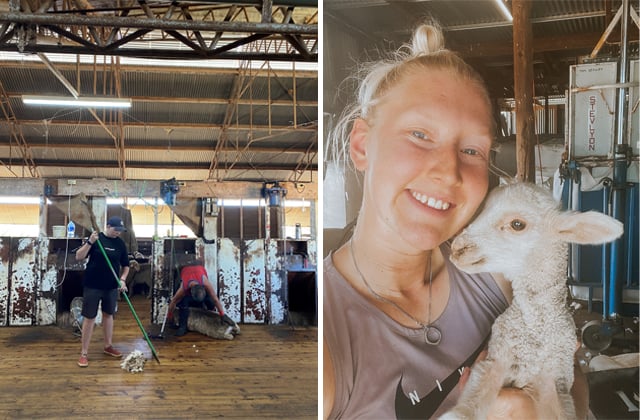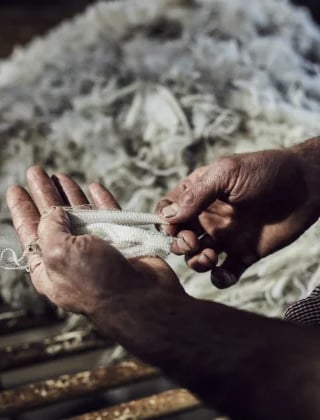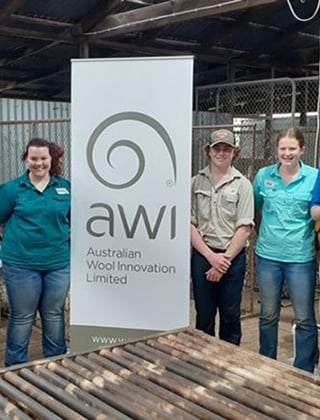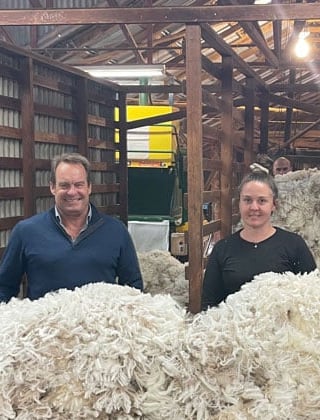Backpackers boost wool’s workforce
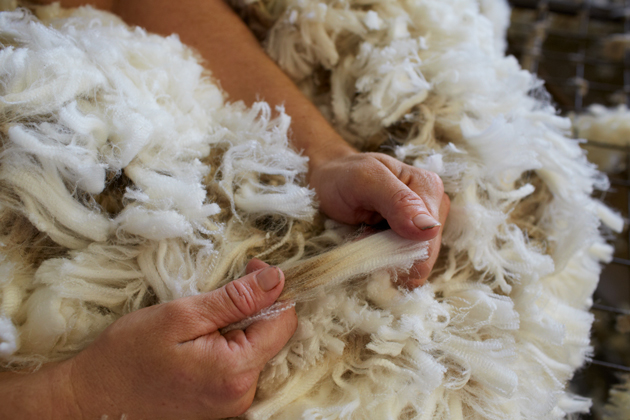
When backpackers Marin Loo and Gertrud Tsigin from Estonia hit the boards with a shearing contractor in NSW’s Central West last year, their journey with Australia’s wool industry took a turn for the better, for all involved.
There are well over 100,000 backpackers in Australia and they are not all soaking up the sun on Bondi Beach. Most are here on Working Holiday visas, with many very willing to work in agriculture and as shed staff and farm hands, thereby taking the stress out of the tight labour market in rural areas.
Estonian backpackers Marin and Gertrud were at the end of a stint of wool handling when woolgrower Tom Kirk of ‘Pine Park’, Condobolin, came to employ the two as general farm hands.
“They were working with a contractor and after finishing work where they were, they had nowhere to go. So the contractor dropped them at my place to see if I had any work. They were looking to complete their 88 days of farm work to get a new visa,” Tom said.
“They were already trained in the shed, so we went straight into shearing and did a couple of weeks before they took on some general farm work.”
Tom’s neighbours, through word of mouth, then took on the girls and employed them for six more weeks performing farm work.
Estonian backpackers Gertrud Tsigin (left) and Marin Loo (right) were valued workers in the sheds of Central West NSW.
Working in the shed
About two-thirds the size of Tasmania, Estonia is a country in Northern Europe bordering Russia and the Baltic Sea, with an agricultural system very different to Australia. So, for the girls, beginning work inside a woolshed wasn’t initially without its challenges, but they soon began to love it.
“Outback Australia is very different to Estonia, which is much colder, so I was really struggling with the heat,” Gertrud said.
“At first, I was not so sure about the shed and working in there, but once I learnt everything I thought ‘cool’ and if I come back, I want to go to the sheds, not anywhere else!”
For four months, the two worked in woolsheds as shed hands – skirting wool, pressing, penning up and eventually moving on to the outside shed duties. Both girls tried their hand at shearing, finishing off the sheep with the last six or seven blows.
“I really love everyone I worked with, especially the shearers, they are all so chilled and friendly.”
Now back in Estonia for the summer months, both girls plan to return to Australia in October with the intention to head back to the woolsheds.
A potential labour supply
Tom, who runs 4,000 sheep at Bundemar Merino Stud, Baldry, and another 2,000 head at his property at Condobolin, says backpackers are an untapped resource for the wool industry.
“Given the labour shortages across the industry, backpackers can be some of the great workers that can help out – both as farm hands and wool handlers,” he said.
“I’d had mates who’d had backpackers for cotton harvesting, but I hadn’t considered it for my business until this opportunity came along.
“And the reason I hadn’t considered it was because they are generally not trained in the industry. But they are very willing workers because they want their 88 days’ work and want a good report. These girls were young and enthusiastic, and they are keen to come back.”
“Estonia is a tiny country in the north of Europe and they ventured to Australia and make a difference to our industry.”
- Tom Kirk, NSW woolgrower
Tom explains the challenge for farmers can be actually finding and contacting backpackers looking for work in remote and rural areas.
“The hard thing is linking up with backpackers – in my case, it happened by accident.”
Tom says that after more investigation, he has since come across websites that help agricultural enterprises and backpackers connect. Contacting backpacker hostels in your nearest town is also a good idea.
This article appeared in the September 2023 edition of AWI’s Beyond the Bale magazine. Reproduction of the article is encouraged.






